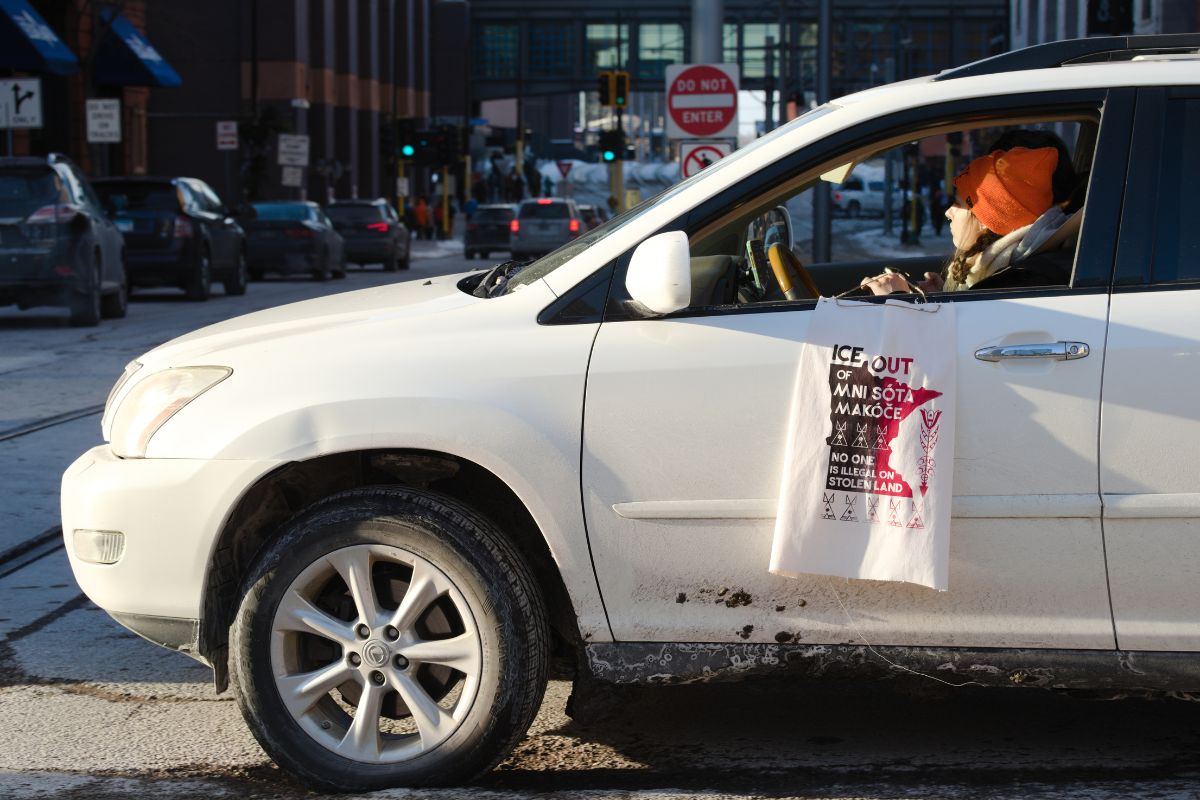
A commonly uttered phrase in movement organizing spaces is: “Those who are closest to the problem are closest to the solutions.” Yet, too often, those with lived experiences are left out of the decision-making process. Such is the case for formerly incarcerated people.
Both men experienced how easy it is for young Black men to be swept up in the criminal legal system. Now, they are determined to bring their lived experiences to bear as they represent their constituents.Nearly one-third of Black men have felony convictions. Policies are often passed that further bar them from engaging in the political process, which exacerbates the vast underrepresentation of formerly incarcerated people in public offices. But Yusef Salaam and Don Scott, Jr., two formerly incarcerated people, are working to change this.
From Prison to Politics
Last month, Salaam was elected to serve on the city council in Harlem, NY, and Scott, currently serving as the Minority leader of the Virginia House of Delegates, was elected to serve as Virginia’s first Black speaker of the House of Delegates.
In 1989, at just 15 years old, Salaam was one of five Black and Latino teenagers who were wrongfully convicted and later exonerated for the rape of a jogger in New York’s Central Park. Scott served seven years in prison after being arrested on federal drug charges shortly after obtaining his law degree from Louisiana State University in 1994. Both men experienced how easy it is for young Black men to be swept up in the criminal legal system. Now, they are determined to bring their lived experiences to bear as they represent their constituents.
As people directly impacted by mass incarceration, they have unique insight into how to address crime. “I think people have a misconception about Black communities that are sometimes having tough times and issues with crime. They don’t want to talk about poverty. They don’t want to talk about all the causes of crime. They don’t want to talk about mental health. They just want to say ‘crime’ and look at the outcome,” Scott said in an article in the Guardian.
“When…we have [formerly incarcerated] men and women who have been elected to these roles, it is the epitome of community forgiveness.”
Scott, who knows what it is like to be disenfranchised because of a prior felony conviction, has committed himself to fighting voter disenfranchisement by taking away the governor’s ability to decide whether formerly incarcerated people should be able to vote. He aims to change the state’s constitution so that people have automatic restoration after completing their sentence.
Salaam ran on a campaign with a robust justice and safety plan. “Across the world, the safest communities are not those that are the most policed but rather are those with the best resources—those that meet their residents where they are and strengthen trust between community and government,” his campaign website reads. He pledged to invest in jobs and training, health and mental wellness, after-school programs, and wraparound services.
Sign up for our free newsletters
Subscribe to NPQ's newsletters to have our top stories delivered directly to your inbox.
By signing up, you agree to our privacy policy and terms of use, and to receive messages from NPQ and our partners.
The Hope of Change
Both men leaned into their stories during their respective campaigns and committed to doing what they could to uplift the voices and concerns of other formerly incarcerated people. For many, these elections bring hope for the future.
“When we have these elections, and we have men and women who have been elected to these roles, it is the epitome of community forgiveness. And it relies on faith in those individuals that they will represent the community as the community needs to be represented,” said Sean Kyler, the associate director of operations at the Vera Institute, in an interview with NPQ.
It is also important to those who may never make it in those rooms. Knowing that their lived experiences are represented in the decision-making process gives them hope.Like Salaam and Scott, Kyler is formerly incarcerated. He spent 24-and-a-half years in a state prison. During his incarceration, he learned about the Vera Institute’s work while researching for his undergraduate degree. Later, as the academic coordinator for Hudson Link for Higher Education in Prison, Kyler worked with Vera to hold a convening at Sing Sing Correctional Facility on how to promote Pell Grant restoration for incarcerated people. Out of that convening came the Alliance for Higher Education in Prison.
Now working at Vera full-time, Kyler believes it is essential for people like Salaam and Scott—people who can understand firsthand how tough-on-crime legislation can negatively affect communities—to be represented in positions of legislative power. He notes the 1994 crime bill, which many said looked good on paper but ultimately led to mass incarceration.
“In application, it really decimated the Black and Brown community and has us in this position that we’re in with mass incarceration and many Black and Brown people not having the right to vote,” Kyler said.
As Kyler notes, having people with lived experiences in rooms where policies are made is essential to the policymaking process. However, it is also important to those who may never make it in those rooms. Knowing that their lived experiences are represented in the decision-making process gives them hope.
“It provides hope that there is someone in power who understands what life is like for many in the Black and Brown community,” Kyler said, “for those who have been incarcerated and formerly incarcerated.”












